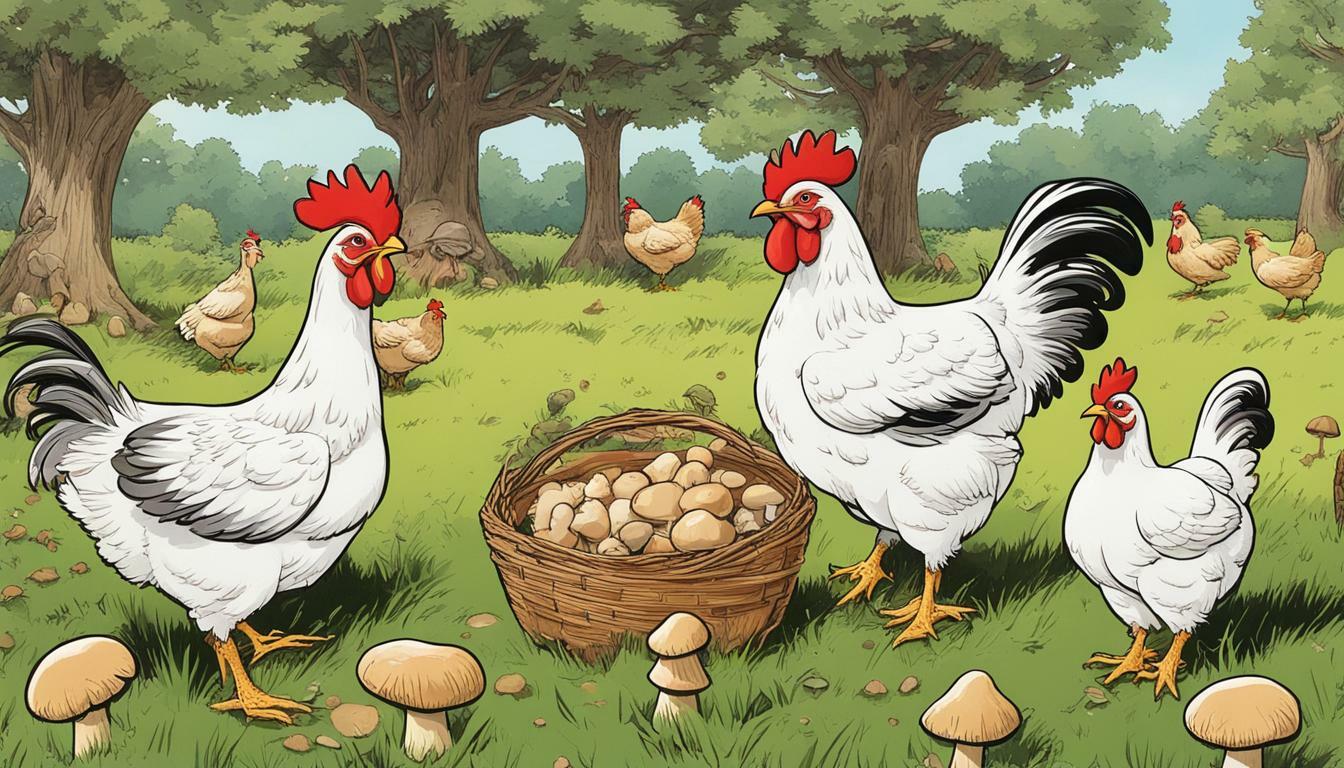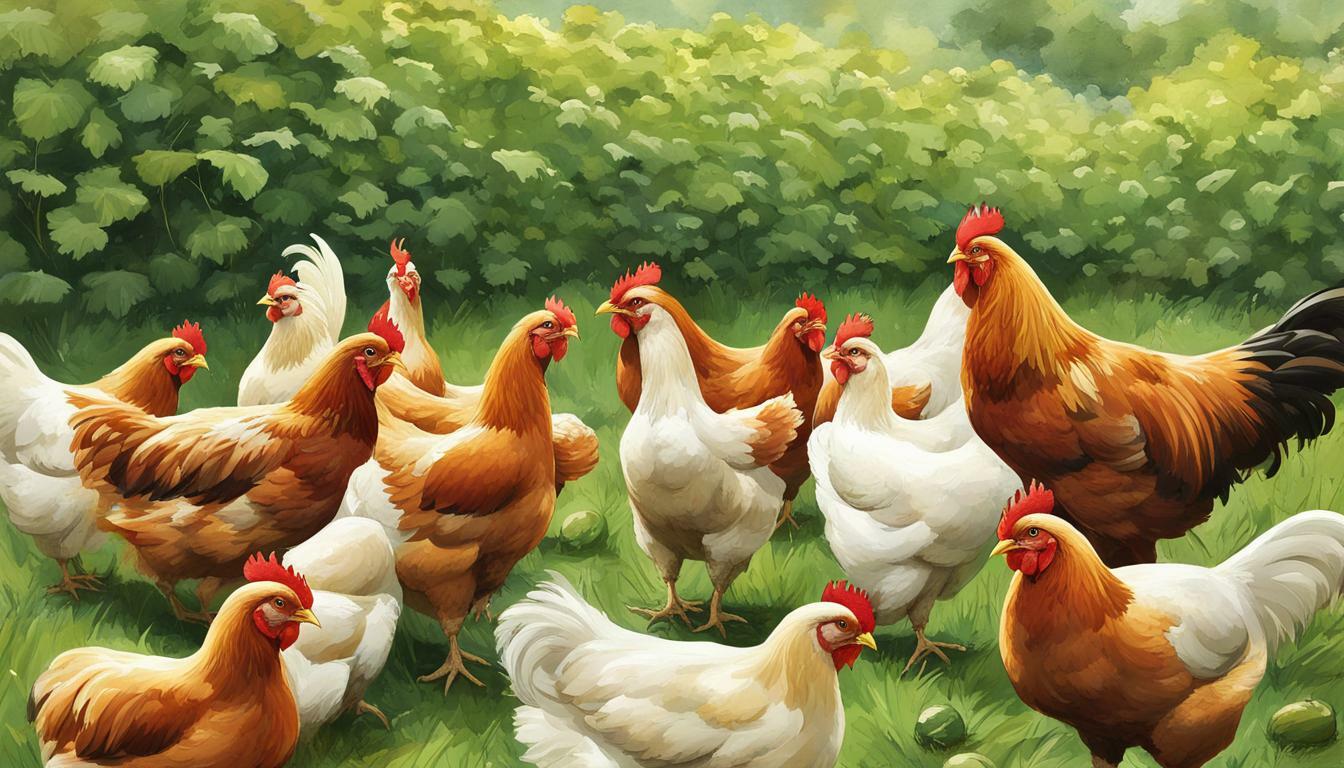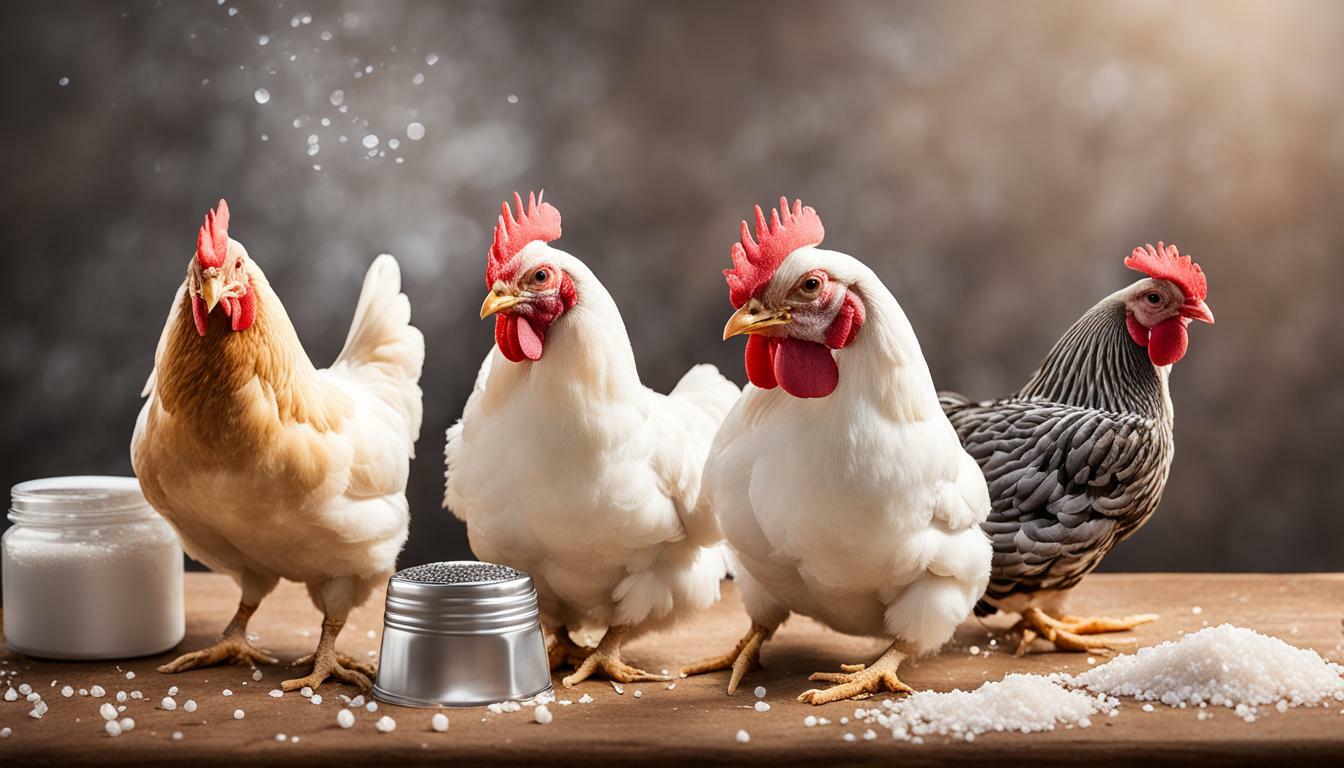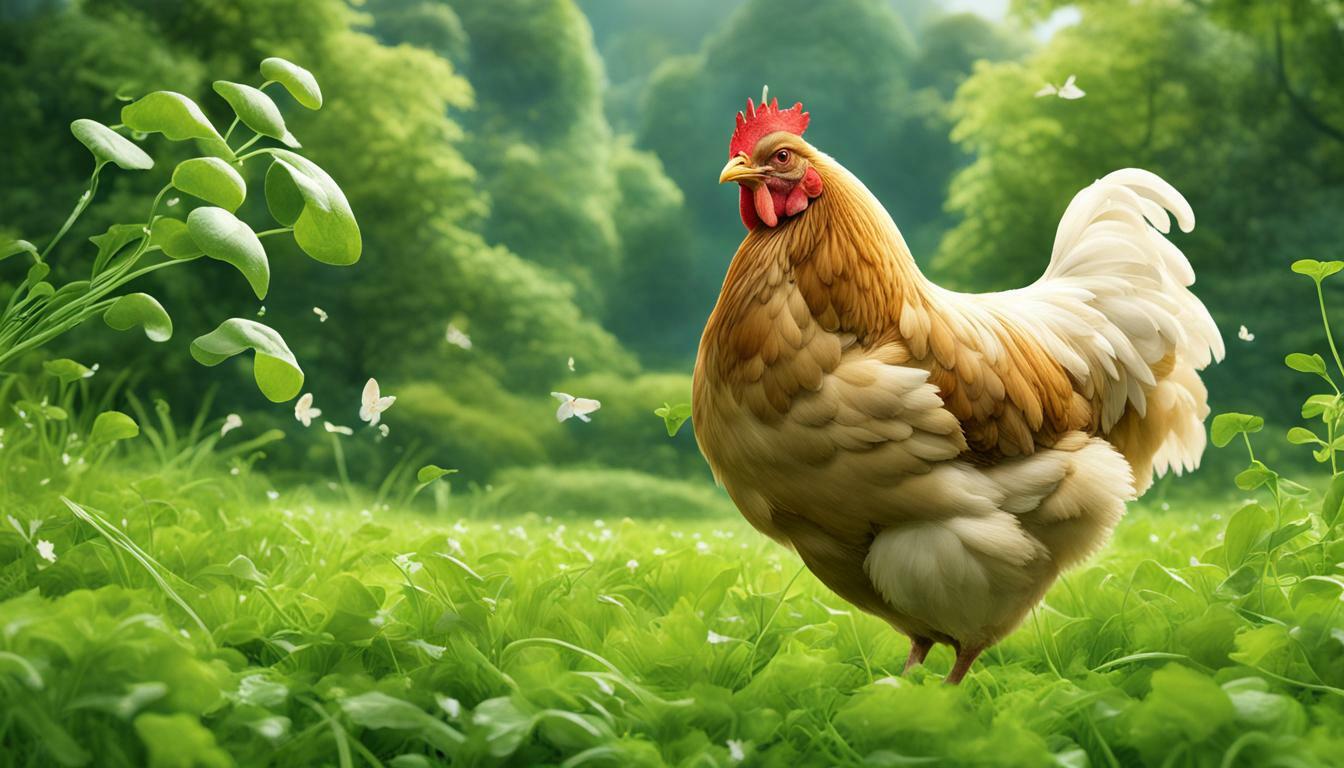Can Chickens Eat Mushrooms? A Friendly Guide for Chicken Owners

Table of content:
- What Types of Mushrooms Can Chickens Eat?
- Are Wild Mushrooms Bad for Chickens?
- Can Chickens Eat Store Bought Mushrooms Safely?
- How Much Mushrooms Can I Feed My Chickens?
- Will Mushrooms Make Chickens Sick?
- Do Chickens Like the Taste of Mushrooms?
- What Nutrients Are in Mushrooms for Chickens?
- How Often Should I Feed Mushrooms to Chickens?
- Should I Cook Mushrooms or Feed Raw to Chickens?
- Can Chickens Eat the Stems and Stalks?
- Final Thoughts
Raising chickens often means letting them forage and explore new foods. If you have mushrooms growing in your yard or garden, you may wonder if chickens can eat them. Understanding which mushrooms are safe and nutritious for chickens is important for their health.
What Types of Mushrooms Can Chickens Eat?
Not all mushrooms are safe for chicken consumption. There are thousands of mushroom species, and some contain toxins that can cause liver damage or even death in chickens. (mushrooms, fungi, poisonous, safety, toxins)
The best approach is to properly identify any wild mushrooms before feeding them. Here are some common safe, edible mushrooms for chickens:
- Oyster mushrooms – These have a mild, sweet flavor. They contain protein, vitamins, and minerals.
- Button mushrooms – The familiar white mushrooms you find at the grocery store. These are non-toxic and safe for chickens.
- Portobello mushrooms – These larger mature buttons mushrooms are also edible and safe.
- Cremini mushrooms – The small brown mushrooms are just young portobellos. Good source of selenium and niacin.
- Porcini mushrooms – With their nutty flavor, these wild mushrooms are a favorite treat.
- Chanterelle mushrooms – Bright yellow/orange, they have an appealing taste and unique shape.
- Shiitake mushrooms – Full of nutrients, these add lots of flavor.
- Enoki mushrooms – Tiny mushroom clusters full of vitamins and protein.
Avoid feeding chickens any wild mushrooms unless you can positively identify them. Some extremely toxic lookalikes exist. When in doubt, leave it out. (identification, edible, inedible)
Are Wild Mushrooms Bad for Chickens?
Not all wild mushrooms are dangerous for chickens, but some are. Backyard chickens that free range may nibble on mushrooms they find growing in yards, gardens, or woods. While this natural foraging is usually fine, certain toxic species can grow wild nearly anywhere.
Examples of potentially deadly wild mushrooms for chickens include:
- Amanita – Destroying angel, death cap, fool’s mushroom
- Galerina – Deadly galerina, autumn skullcap
- Conocybe – Cone cap, dunce cap
These contain the toxins amanitin or alpha-amanatin which can be fatal to chickens who eat them. They affect the liver, kidneys, and digestive system. Even expert mushroom hunters can struggle to distinguish edible from poisonous wild varieties. When possible, prevent chickens access to areas where dangerous mushrooms grow. (poisonous, toxins, symptoms)
Can Chickens Eat Store Bought Mushrooms Safely?
Yes, chickens can safely eat most types of store bought mushrooms, as these are commercially grown non-toxic varieties. Good options include:
- White or brown mushrooms
- Portobello
- Cremini
- Enoki
- Maitake (Hen of the Woods)
- Oyster
Avoid specialty wild foraged mushrooms from the store, as these carry a higher risk of toxicity. Stick to well-known cultivated mushrooms and verify they are fresh and unspoiled. Wash thoroughly, trim any woody stems, and chop larger mushrooms to an appropriate size before feeding. (store bought, cultivated, safety)
How Much Mushrooms Can I Feed My Chickens?
Mushrooms can be fed to chickens fresh, dried, or powdered. They make a healthy supplement to provide extra protein, minerals, and nutrients. Chickens enjoy foraging for treats, so offering mushrooms is an enrichment activity.
A good guideline is feeding chopped or dried mushrooms at 1-5% of the total daily diet. So for every 1 lb of feed, provide 1-5 oz of supplemental mushrooms divided into multiple small meals. This prevents any digestive upset from too much at once.
Consider mushrooms more of a nutritious snack or topping, not a major feed component. Monitor to ensure chickens are not filling up on low-calorie mushrooms instead of balanced feed. (forage, enrichment, treat)
Will Mushrooms Make Chickens Sick?
Healthy chickens rarely get sick from eating properly identified, fresh mushrooms in moderation.
Possible risk factors include:
- Young chicks or delicate breeds
- Compromised immunity or pre-existing issues
- Moldy, rotting, or contaminated mushrooms
- Overindulging on a huge amount
- Wild, unidentified mushrooms
Monitor for these symptoms of mushroom poisoning:
- Lethargy, weakness
- Loss of appetite
- Excess thirst and urination
- Diarrhea
- Liver or kidney problems
Consult a vet immediately if poisoning is suspected. Remove access to mushrooms and provide supportive care. Most chickens recover fully with prompt treatment. (symptoms, veterinarian)
Do Chickens Like the Taste of Mushrooms?
Chickens are natural foragers with diverse tastes. Many chickens do enjoy eating mushrooms when offered for the first time. The appeal seems to be texture over taste. Chickens spend much of their day pecking and scratching for food. Mushrooms offer activity along with a nutritious nibble.
Not all chickens may like mushrooms. Monitor reactions and adjust amounts accordingly. Offer chopped portions first so chickens associate mushrooms with food. Scatter small pieces in pine shavings or leaves to stimulate natural foraging behavior. (forage, enrichment, nutrition)
What Nutrients Are in Mushrooms for Chickens?
Mushrooms can offer supplemental nutrition to complement a balanced chicken diet. Here are some of the ways mushrooms can benefit chicken health:
- Protein – Mushrooms have 2-3 grams of protein per 100g serving. Helps chickens grow muscle.
- Potassium – Mushrooms have more potassium than most vegetables. Supports nerve function.
- Copper & Phosphorus – Both help produce healthy eggs. Also aids bone growth.
- Selenium – Mushrooms have one of the highest selenium levels of all foods. Boosts immunity.
- Niacin – Helps convert food into energy. Supports skin and digestion.
- Vitamin D – Mushrooms naturally produce vitamin D when exposed to UV light. Helps calcium absorption.
- Chitin – This prebiotic fiber supports healthy gut bacteria. Promotes digestion.
- Antioxidants – Compounds that reduce inflammation and cell damage. Can boost immunity.
So while not a complete feed itself, mushrooms contain concentrated amounts of key micronutrients to compliment a balanced diet. They offer the most benefit when chickens free range and exercise their natural foraging instincts. (nutrition, protein, nutrients, immunity)
How Often Should I Feed Mushrooms to Chickens?
Mushrooms are best fed in moderation 2-3 times per week at most. Chickens enjoy novelty when it comes to treats and foraging. Rotate various mushroom types to keep it interesting.
Consider these tips for frequency:
- Start with small portions 1-2 times a week.
- Observe if chickens eagerly consume mushrooms.
- Increase quantity and frequency if chickens remain interested.
- Cut back if chickens lose interest or have soft droppings.
- Dried mushrooms can be available free choice.
- Grow your own mushrooms for fresh treat.
Adult chickens can handle more mushrooms than young chicks. Adjust frequency and amounts based on age and health status. Be conservative until chickens adjust to new treat. (treat, forage, enrichment)
Should I Cook Mushrooms or Feed Raw to Chickens?
Both raw and cooked mushrooms are safe for chickens. Cooking does not destroy any nutrients, and can make mushrooms more palatable. Here are some preparation tips:
- Raw – Provides crunch and fiber. May be tough for baby chicks.
- Chopped – Cut into small pieces for easy eating. Allows tasting.
- Sautéed – Lightly cooked in oil. Enhances flavor.
- Dried – Concentrates flavor and preserves well. Rehydrates easily.
- Powdered – Can add to feed or sprinkled as supplement.
Try offering mushrooms prepared in different ways and monitor what your flock prefers. The key is starting with fresh mushrooms free of any rot or mold. Cook or preserve any excess within 2 days. (raw, cooked)
Can Chickens Eat the Stems and Stalks?
The stems, stalks, and woody base of some mushrooms are perfectly safe and nutritious for chickens to eat. Options include:
- Button mushrooms – Fine to eat entire mushroom.
- Portobello – Remove just the very end of the base if dried out.
- Oyster mushrooms – Peel away any tough base portion first.
- Shiitake – Remove woody stems before serving.
- Enoki mushrooms – Trim root end, serve whole clusters.
Chickens that forage enjoy the activity of pecking at and tearing mushrooms apart. Just monitor for any uneaten woody pieces. Cut or grind these up before composting to prevent sharp pieces. (stems, stalks)
Final Thoughts
When properly identified and fed in moderation, mushrooms can be a nutritious supplement for backyard chickens. Take care to avoid potentially toxic wild mushrooms, and stick to well known edible varieties. Feed just a small portion of the overall diet, and monitor chickens’ health and reaction. With just a little caution, mushrooms can be a beneficial treat chickens relish. (enrichment, treat, safety, forage)
Welcome. I’m Adreena Shanum, the proud owner of this website, and I am incredibly passionate about animals, especially poultry. I founded adreenapets.com as a labor of love, stemming from my desire to share my knowledge and experiences with poultry enthusiasts worldwide.




